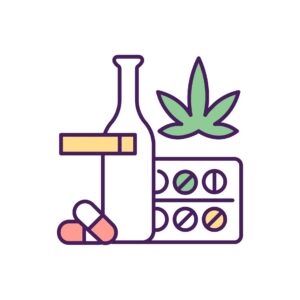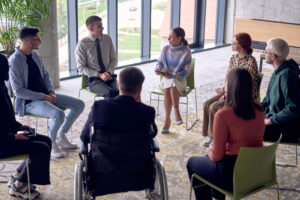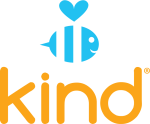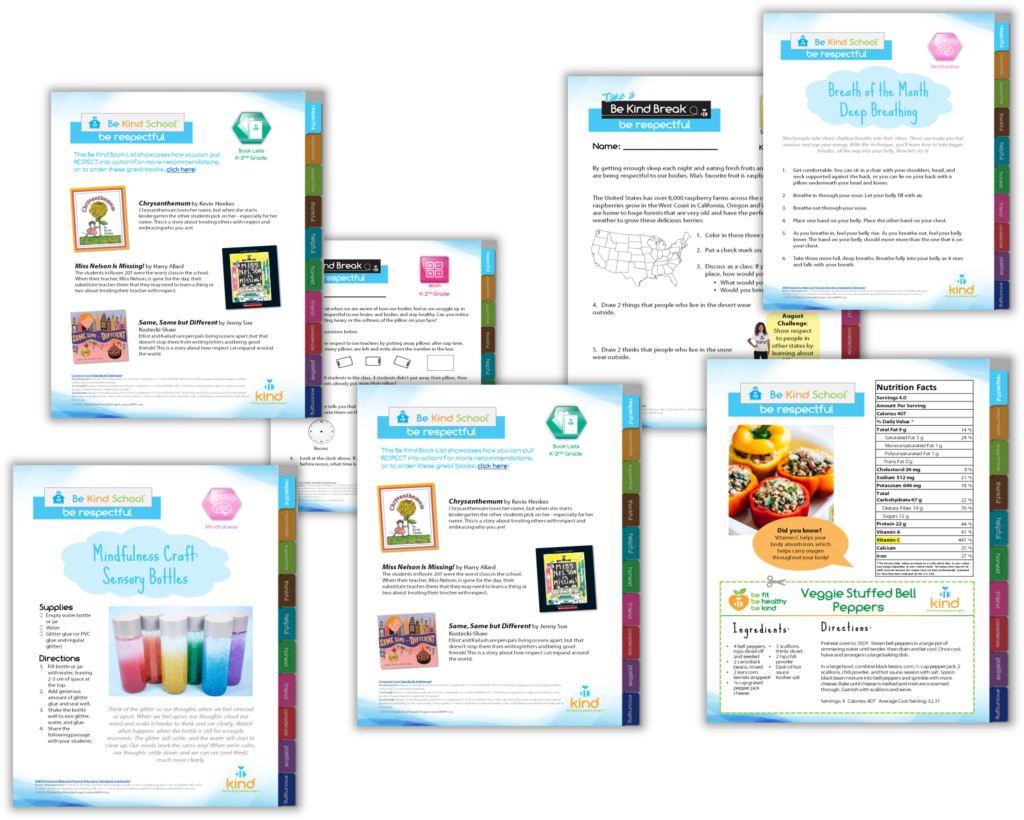- About
- Programs
- After School Classes
- All-School Assemblies
- The BE KIND Business
- The BE KIND Community Education Center
- The BE KIND SCHOOL
- BE KIND on the MOVE
- Classroom Resources
- #CyberSkills
- Family Engagement
- Fitness Programs
- Gardens
- Grace’s Group
- Health & Wellness
- Summer Programs
- Teacher Training
- Wellness Wednesday
- Athletes for Arizona
- Events
- Get Involved
- Donate
The Road to Recovery
- Home
- Wellness Wednesday
- Disease Prevention
- The Road to Recovery
Substance Abuse
Building a Community of Support

Did you know that 40 million Americans ages 12 and older have substance abuse problems?
Significant consequences can occur from excessive usage of substances such as alcohol, marijuana, hallucinogens, sedatives, inhalants, and nicotine. According to the Department of Drug and Mental Health, “The abuse of drugs and alcohol is by far the leading cause of preventable illnesses and premature death in our society. The importance of substance abuse treatment cannot be overstated, and fortunately, many effective treatments are available.”
Today, we’re sharing some essential resources about substance use, including what addiction looks like, common challenges surrounding substance abuse, and tools for recovery and healing. We’re entering a space filled with hope, support, and understanding.
What Can Addiction Look Like
Addiction can manifest in various ways, and its appearance may differ based on the type of substance or behavior involved. It’s important to note that addiction is a complex and multifaceted issue, and individuals may exhibit some or all these signs to varying degrees. Mayo Clinic describes:
- Physical Symptoms:
- Changes in Appearance: Sudden weight loss or gain, neglected personal hygiene, and a general deterioration in physical appearance.
- Bloodshot Eyes and Dilated Pupils: Common signs of drug use, including stimulants or opioids.
- Unexplained Health Issues: Chronic illnesses weakened immune system, or recurrent health problems.
- Behavioral Changes:
- Secrecy and Isolation: Hiding activities, withdrawing from social interactions, and isolating oneself from family and friends.
- Neglect of Responsibilities: Decline in performance at work or school, neglecting household duties, and shirking responsibilities.
- Psychological Signs:
- Mood Swings: Rapid and extreme changes in mood, including irritability, anxiety, or depression.
- Defensiveness: Becoming defensive or avoiding discussions about their behavior.
- Lack of Motivation: Decreased interest in previously enjoyed activities and a general lack of motivation.
- Financial Issues:
- Financial Strain: Unexplained financial difficulties, borrowing money frequently, or selling personal items to support the addiction.
- Relationship Changes:
- Strained Relationships: Difficulties in maintaining healthy relationships with family and friends.
- Lack of Trust: Trust issues due to deception or broken promises.
- Neglect of Personal Responsibilities:
- Decline in Work or Academic Performance: Decreased performance at work or school due to preoccupation with addictive substances or behavior.
- Legal Issues: Involvement in legal problems related to the substance or behavior.
- Physical Dependence:
- Withdrawal Symptoms: Physical or psychological symptoms when attempting to stop using the substance, such as tremors, nausea, anxiety, or insomnia.
- Loss of Control:
- Inability to Quit: Persistent use of the substance or engagement in the behavior despite a desire to quit.
Take a closer look at the Mayo Clinic Website to see what types of addictions there are if you are unaware and would like more education and resources!
Common Familial Challenges
Dealing with addiction as a family is a complex journey, and seeking professional guidance is often crucial. Remember, establishing a supportive network, setting boundaries, and fostering open communication is foundational to overcoming these challenges. They are probably just as scared as you are. Read more in detail with the Addiction Center!

- Communication Breakdown:
- Challenge: Difficulty expressing feelings and concerns openly, leading to misunderstandings and tension.
- Solution: Establish open communication channels, encourage honest dialogue, and consider family therapy to facilitate discussions in a structured setting.
- Role Changes and Dysfunction:
- Challenge: Shifts in family roles, with some members becoming enablers or feeling overwhelmed by responsibilities.
- Solution: Establish clear boundaries, encourage all family members to share responsibilities, and seek professional guidance to redefine healthy family roles.
- Emotional Stress:
- Challenge: Anxiety, fear, and emotional distress among family members.
- Solution: Promote self-care practices for family members, such as therapy, support groups, and stress-relief activities. Encourage open conversations about emotions.
- Financial Strain:
- Challenge: Economic consequences of supporting someone with addiction.
- Solution: Establish financial boundaries, seek financial counseling, and consider involving the addicted family member in financial discussions to promote responsibility.
- Trust Issues:
- Challenge: Broken trust due to deceptive behaviors associated with addiction.
- Solution: Rebuilding trust is a gradual process. Encourage consistent, honest communication and consider involving a therapist to navigate trust issues.
- Isolation:
- Challenge: Social withdrawal due to the stigma associated with addiction.
- Solution: Foster a supportive environment within the family, educate friends and extended family about addiction, and consider joining community or online support groups.
- Impact on Children:
- Challenge: Children facing neglect, inconsistent care, or emotional distress due to parental addiction.
- Solution: Prioritize the well-being of children, involve them in age-appropriate discussions, and seek professional help to address any behavioral or emotional challenges they may be experiencing.
- Health Issues:
- Challenge: Stress-related health problems for family members.
- Solution: Encourage healthy lifestyle choices, prioritize regular medical check-ups, and seek counseling or support groups for family members dealing with health-related stress.
- Lack of Resources:
- Challenge: Limited access to support services.
- Solution: Research and connect with local or online support services, counseling, and community resources. Advocate for increased awareness and accessibility to support services in your community.
- Resentment and Anger:
- Challenge: Persistent feelings of resentment and anger among family members.
- Solution: Encourage open expression of emotions, consider individual and family therapy, and focus on forgiveness and rebuilding relationships through positive communication.
Healing Together
No one wants to go through this journey alone! Remember, healing is gradual, and each family member may navigate it differently. Patience, understanding, and a commitment to supporting one another are key elements in the journey toward collective healing. Peace Valley Recovery goes into detail about each aspect of recovery:

Educate and Understand:
- Education: Learn about addiction as a family to understand its nature, causes, and effects. Knowledge can help dispel myths, reduce stigma, and promote empathy.
Establish Open Communication:
- Family Meetings: Schedule regular family meetings to encourage open communication. Provide a safe space for everyone to express their thoughts, feelings, and concerns.
Encourage Family Self-Care:
- Self-Care Practices: Encourage each family member to engage in self-care practices. This could include activities such as exercise, meditation, or hobbies that promote mental and emotional well-being.
Celebrate Milestones:
- Recovery Milestones: Acknowledge and celebrate milestones in the recovery journey, both for the individual in recovery and the family. This fosters a positive and supportive atmosphere.
Create New Positive Rituals:
- Family Rituals: Establish new positive rituals or traditions in which the family can participate. This helps create new, positive memories that replace associations with addiction.
Plan for the Future:
- Shared Goals: Collaborate on setting goals and aspirations for the family’s future. This can instill a sense of purpose and direction.
May the lessons learned in this blog serve as guiding lights on your family’s path to healing. Embrace the support around you, foster empathy, and celebrate the victories, no matter how small. Here’s to the unwavering strength of family bonds, the resilience of the human spirit, and the promise of a brighter, healthier tomorrow.
If you or someone you know needs immediate assistance with addiction, please call the SAMHSA Hotline @ 1-800-662-4357 or visit their website for more information.
Published on February 7, 2024
Questions? Comments? Want to contribute to the Wellness Wednesday Blog?
Send your ideas to info@bkpp.org.

Learn More about The Be Kind People Project®
- Programs
- After School Classes
- All-School Assemblies
- The BE KIND Academy
- The BE KIND Business
- The Be Kind Break
- The BE KIND School
- The BE KIND on the MOVE
- #CyberSkills
- Family Engagement
- Fitness Programs
- Gardens
- Grace’s Group
- Health & Wellness
- Summer Programs
- Teacher Training
- Wellness Wednesday
- Athletes for Arizona
Copyright © The Be Kind People Project | Privacy Policy

